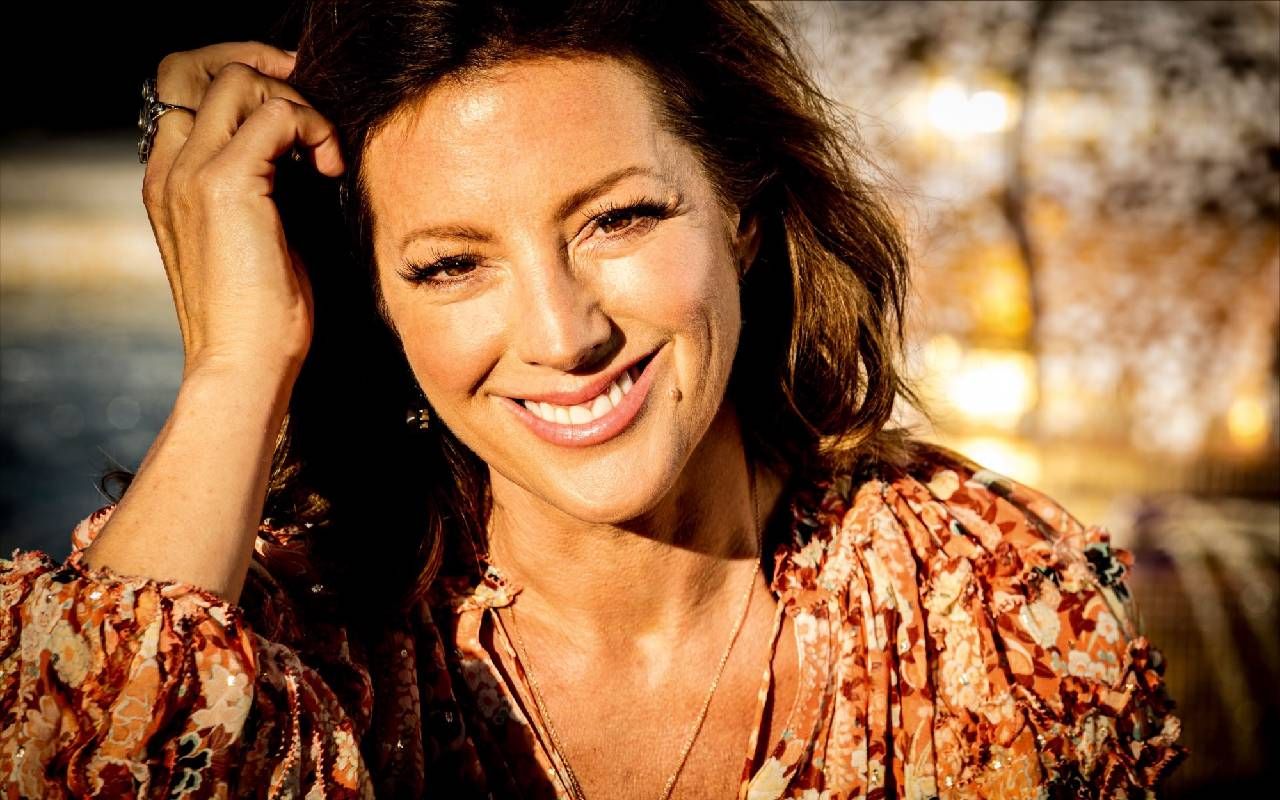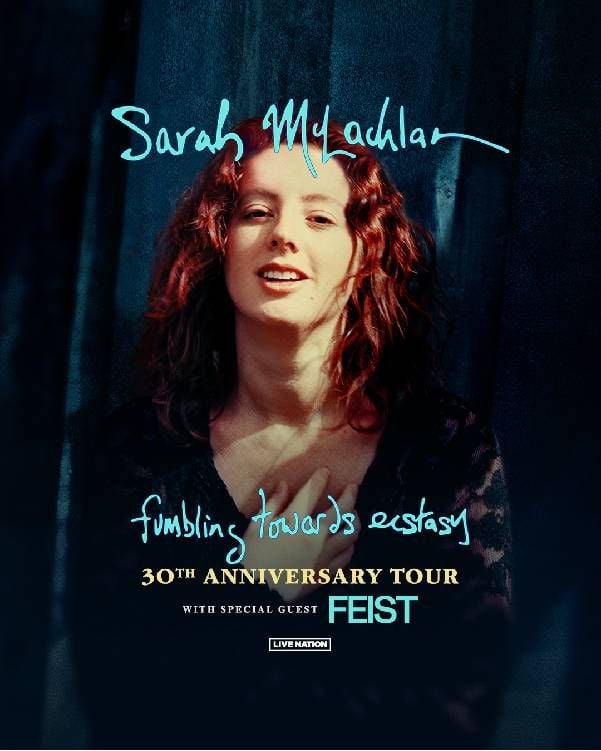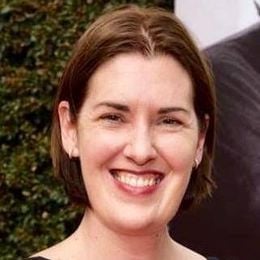Sarah McLachlan Reflects on 30 Years of 'Fumbling Towards Ecstasy'
The Grammy Award-winning singer-songwriter talks to Next Avenue about the making of her breakthrough album, her upcoming tour and the challenges of songwriting
In February 1993, singer-songwriter Sarah McLachlan, still relatively unknown outside of her native Canada, released her third studio album, "Fumbling Towards Ecstasy." Over the course of the next two years, the album climbed the U.S. charts and by the end of the "Fumbling Towards Ecstasy" tour, McLachlan was a rising star.
Thanks to the album's singles — the dark, obsessed love song "Possession" and the grief-filled "Hold On" — and their accompanying videos, McLachlan quickly gained a reputation as an ethereal-voiced, melancholy musician — a notion she's more than happy to dispel.

"I always thought that image — which, to be fair, I created myself — of, you know, me sitting in the dark reading Sylvia Plath with candles late at night [was ridiculous]," McLachlan tells Next Avenue. "I am a total goof. I am a life lover. I'm very optimistic and positive. But I'm also all those other things that I get out of my music. It's not easy for me to write happy songs because I don't really care to write when I'm happy. I don't need to.
So what people hear and feel and see of me, for the most part, is the dark, moody stuff, which I absolutely love. But the other side of me is very lighthearted. I'm also Canadian, and we love to take the piss out of ourselves."
"It's not easy for me to write happy songs because I don't really care to write when I'm happy. I don't need to."
In the ensuing years, McLachlan has released six additional studio albums, won three Grammy Awards, founded and headlined the enormously successful all-female Lilith Fair tour, and founded the Sarah McLachlan School of Music, a Canadian nonprofit that offers free music education programming to children as well as older adults.
Now, she's preparing to embark on her first tour in seven years. From May through July, she'll be on the road to celebrate the 30th anniversary of "Fumbling Towards Ecstasy." With musicians Feist and Allison Russell joining as special guests on the 30-city tour, McLachlan will perform the album in its entirety, along with some of her other hits.
Over a recent phone call, McLachlan talked to Next Avenue about her memories of "Fumbling Towards Ecstasy," the challenges of songwriting, and why she understands if you just can't take that ASPCA commercial.
This interview has been edited for clarity and length.
Next Avenue: When you think about "Fumbling Towards Ecstasy" — the making of it, its release, and the touring to support it — what comes to mind?
Sarah McLachlan: Making the album was freedom. Every record has had its fair share of challenges, particularly with writing. That was the first record that was actually easy to make. And I would say the last record that was easy to make. [Laughs] So that's a big part of it. It was kind of like going from child to woman, as well. It was the first time in my life that I was single. [I was] unencumbered by children. That's a terrible thing to say about my kids, but man, did they slow s*** down. [Laughs] I don't know, I wish I had the recipe. I don't know what it was — I just felt very free. It was a fun, joyful time. Very little stress. I think the second record was stressful to make, so it was very much like I had worked to build my freedom. I got to make the record I wanted to make, which was an incredible luxury for which I'm still very grateful. ["Fumbling"] was the first one where it was like, you just get to do what you want.
"I slowly built up a really amazing fan base, and slowly became more and more successful."
This was your third album, and it was also your breakthrough album, especially here in the States. Could you sense at the time that there was more public recognition and focus on you as this album came out?
I think my career grew in a nice, measured way. I was not an overnight success. I went out with my first record and toured for a year and a half. I toured almost two years with the second record and went back to many markets a number of times. I slowly built up a really amazing fan base, and slowly became more and more successful. So I think with "Fumbling" it was sort of like, "Okay, now we're playing theaters. It's so fun!" I loved playing the record, I loved the songs. I wasn't sick of them by the time I finished them. [Laughs] I didn't feel like they were beat to death. It felt like, 'I'm gettin' there! This is really good.'
And you have to understand, I didn't have any yardstick for success. I didn't think, 'I'm going to meet this goal.' I've always been very much, 'Live in the moment and let's see what happens' and it's all a big adventure. I think I was still in that kind of childish mindset of, 'This is awesome!' It's sort of Peter Pan, you know? I get to live my dream and go out on the road and hang out with these great musicians who are my friends and play music every night. And people actually want to hear what we're having to play! It doesn't get any simpler than that and any more beautiful.
"Possession" was the first single off the album. I've read interviews where you've said it was written in response to letters you'd received from obsessed fans. You essentially turned something that must have been terrifying into this gorgeous song that became a huge hit for you. What was it like to put those lyrics down on paper?
It was kind of like taking back my power. Because it was the first time that it happened to me, where I had a stalker, and it was really scary. I felt extremely vulnerable. So trying to get into the head of someone like that and understand it a little bit and turn it around helped me process it and helped me put it into a place where I wasn't really afraid anymore.
I read an old quote of yours where you said that the song "Good Enough" was written very quickly. Does that happen often where a song just pours out of you or—
Nope! [Laughs]
So you tend to struggle with lyrics?
Yeah. It's a rare occasion when a song comes out quickly. I am always making music, but lyrics are something I have struggled with my entire life. I care deeply about what I'm trying to create as far as the mood and the energy of the lyrics — they are very important — but it doesn't come easily or naturally to me. I work hard to get to a place where it feels right. But that was one of those rare occasions when it was pretty quick and easy. "Angel" was probably one of the only other ones that ever came like that.
As you're revisiting these old songs, do you ever think 'I wish I'd written that differently' or 'I'd really like to revise that lyric'?
Oh, sure! I think that is one of the reasons it's so hard for me to go back and revisit "Touch," the first record. It was my first attempt at songwriting, basically. I have to give myself some latitude and say, "Hey, you were 19." But oh, yeah, the words can't form in my mouth. I just can't do it. [Laughs]
"It's been since 2017, I think, that I've been on the road. I've gotten significantly older since then and slowed down a little bit. So I'm excited by it."
It's been a while since you've been on tour. How do you feel about heading back out there?
Daunting and excited. It's been since 2017, I think, that I've been on the road. I've gotten significantly older since then and slowed down a little bit. So I'm excited by it. I haven't done it in a long time. It feels like a challenge as opposed to the norm. And I know full well that I still absolutely love playing live. I feel like that's where I'm living my purpose. That's why I'm here. I love that I get to still do that. It feels like a privilege after all these years. So it's mostly excitement. I have so many friends saying, 'I want to come on the road with you, and we're gonna hang out! It's gonna be a great party!' I'm like, 'Um, this is actually really hard work for me. I don't know how much energy I'm gonna have to, you know, entertain you as well as everybody else.' So I'm sort of being quiet about those requests right now. [Laughs]
You often record songs in various ways. For example, you've recorded "Possession" as a ballad on the piano as well as the band version that was released as the single. Do you anticipate changing the way that you perform the songs on this tour?
We have a good solid week of rehearsals, which I'm excited about because we get to all come in knowing the songs as they are on the record but then pick them apart and see where they could grow. I mean, that's when you talk about having an opportunity to go back and revisit, whether it's lyrics or the music, [and decide if] there's things I might do differently. I also have to be cognizant of the fact that people love the record the way it is. I want to honor that, but I also want to be able to have a little latitude in changing some things. So we'll have to wait and see.
"It's cathartic for me to write these songs when I'm in these situations, and in the trauma that I'm trying to write myself out of."
As a singer-songwriter, you have a unique job in that you're performing a piece of art night after night, decades after it was created. You're literally singing songs that were written when you were in your mid-twenties, you were just starting your career, and you were dating your drummer, who is now your ex-husband. You were at such a different place in your life. When you perform the songs now, does it bring you back to those moments?
It doesn't. And it's a really good question. I've thought about it quite a bit. What I feel is joy. [The songs] all take me to a different place. It's cathartic for me to write these songs when I'm in these situations, and in the trauma that I'm trying to write myself out of. It's not like I come to any great solutions when I finish the song, but I do feel a sense of peace around the situation. And having the luxury of a lot of time passing, too — there's way more objectivity. I can sing the song that is about an incredibly hard situation for me, but it's this release of, 'Oh, I'm in such a great place now. I went through that, and that helped bring me to where I am today.' So for me, it's like revisiting a beautiful memory. Might be a hard memory, but it doesn't feel hard now.
Will you be releasing any new music soon?
I would love to have an album out in time for this tour, but that is not gonna happen. [Laughs] I'm still writing. It's slow going for me. But I will be playing some new songs, for sure.
"Music was my salvation. It was that one thing that I knew I was good at. It gave me a sense of value, but nothing else did, and it kept me going through all those dark times."
I love the way that you announced this tour with a reference to the "Angel" SPCA commercial. There's been this preconceived notion that you're this serious person who writes somber music. But whether it's the tour announcement or your SNL appearance, you seem to really love to poke fun at yourself.
I think it's important to not take oneself too seriously, especially in this business. A lot of people do. And I've been lucky. I have really great friends and people around me who have kept me grounded. Maybe that's part of my upbringing as well. But yeah, it's fun to, in particular, poke fun at the SPCA commercial just because it was so... I mean, wow, did that work like a hot damn, but it pigeonholed me even more into that dark, quiet, thoughtful, provocative [image of] saving puppies and kittens. And honestly, if I had a choice, I'd rather be saving kids. You know, if I had to choose one thing. I've been focused for the last 21 years on kids' mental health and music education. That's my focus.
That's a perfect segue to my next question. One dollar from every tour ticket sold will support the Sarah McLachlan School of Music. Can you share a bit about the school and how it came about?
When I finished Lilith Fair all those years ago, I'd made a lot of money, and I didn't really know what to do with it. We had been giving money away to charity the three years that we had been doing Lilith and it felt good to use that for something good. So I put the money into a foundation and tried to figure out what to do, and I came home and all the public schools were shutting down their music programs. For me, it was a really easy choice to try and fill that gap, to create opportunities for kids to have music education in their lives, especially if they couldn't afford it. I had not only vibrant music programs in school, but I had parents who paid for years of private lessons for me. And I can 100% say I wouldn't be here if I didn't have music in my life, particularly as a teenager, because I was really alone and isolated and kind of a weird kid. Music was my salvation. It was that one thing that I knew I was good at. It gave me a sense of value, but nothing else did, and it kept me going through all those dark times. I mean, God, it still does. It's still the thing I go to rescue me, more than anything.

Thinking that kids wouldn't have that in their lives, particularly these days with social media and the world being as unstable as it is — kids are just inundated with negative images of the world, of themselves. I think more than ever they need an outlet that is healthy and allows them to be vulnerable and be who they are and be celebrated for that. And that is exactly what this school is all about, to let you show up as you are and celebrate you. It's very kid focused. Every year, we create the curriculum around the kids' desires and abilities. And we have an incredible retention rate. Some of these kids come from pretty transient communities, and they stay with us from grade four to grade 12. We now have, I think, 14 of our alumni working for us full-time, too, which is pretty cool. And it's always been completely free. It always has, always will be.
There are programs for adults age 55+, too, correct?
Yeah. We're a children and youth-focused program, but we looked out at the community and saw a lot of seniors who were struggling, too, and we thought, "You know, our society doesn't value our seniors." One of our board members, it was actually her pet project to create a seniors' choir, and it's just awesome. They have so much fun together. And again, it's just about creating community and a space where people can come together and share the joy of making music. It's all about connection.
Tickets for Sarah McLachlan's Fumbling Towards Ecstasy 30 Anniversary Tour are on sale now.

Read More

